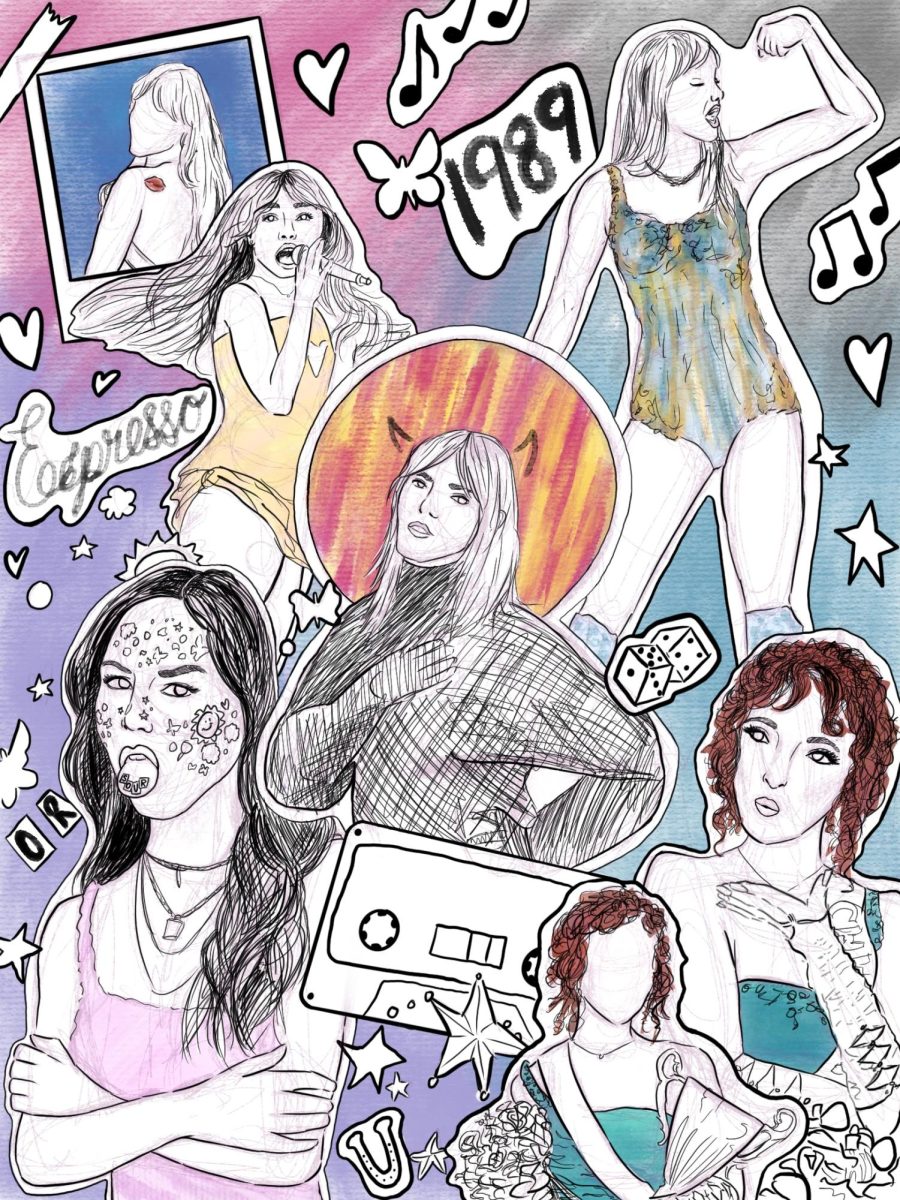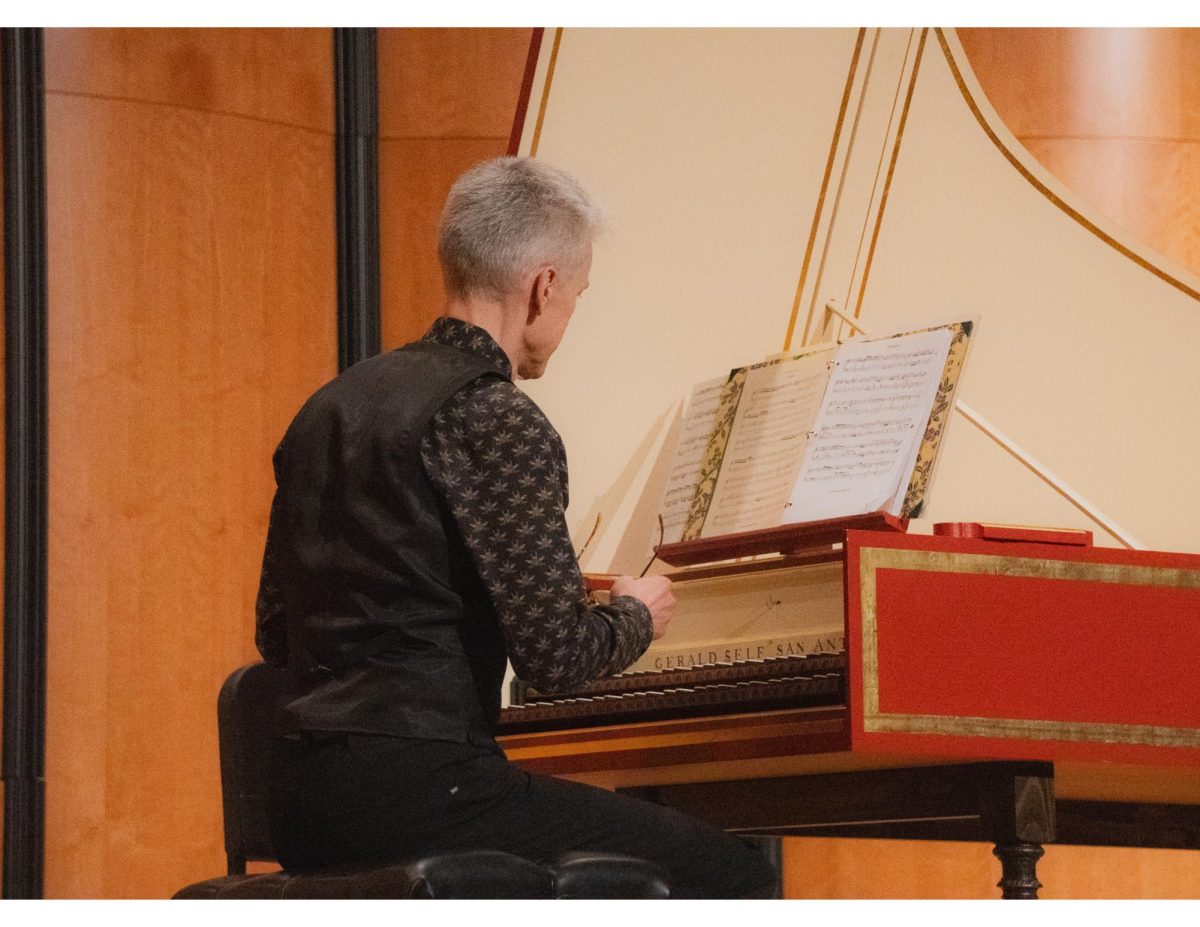Illustration by Ren Rader
Romantic comedies, or “rom-coms,” have been a part of my life since I was a little girl. I remember curling up on the couch with my mother and sister and watching Sandra Bullock, Julia Roberts, Jennifer Lopez, Cameron Diaz or Keira Knightley try against all odds to find love in this crazy world. Rom-coms are lighthearted, humorous crowd-pleasers that always have happy endings in which the male and female protagonists live happily ever after. I firmly believe that a good rom-com is good for the soul and that “The Proposal” is a national treasure that needs to be watched at least once a year. However, as I’ve grown older, I have gotten a little tired of seeing the same dated tropes in every movie that comes out around Valentine’s Day.
Even ignoring the lack of diversity — which is a persistent and pressing issue throughout all of Hollywood — these movies push a warped definition of what love should look like. Movies are dramatizations, and audiences obviously know that what’s portrayed on-screen isn’t real life, but actions or attitudes about dating that are idealized in these films are often actually harmful to women when translated to real-world situations. Over time, after a great deal of exposure to these romanticized-but-actually-creepy cinematic portrayals of love, viewers may internalize them to the point that it affects their dating life.
In the 1998 paper “On being stalked,” the authors claim that “the core dynamic in relational stalking — persistence in seeking a relationship in the face of continuing rejection — mirrors in the extreme the dogged pursuit of ‘true love’ idealized in the culture and media.” The depiction of not taking “no” for an answer as somehow romantic is, in my opinion, the most dangerous cinematic rom-com trope; ask any woman on the street if she’s had a scary or at least uncomfortable experience with a man who wouldn’t leave until he got what he wanted, and she can likely name several off the top of her head.
In the classic movie “Something About Mary,” the male protagonist, played by Ben Stiller, hires a private investigator to find his high school crush, played by Cameron Diaz, whom he hasn’t seen in 13 years. This may be a personal quirk, but I would be absolutely terrified if a man I barely remembered and hadn’t seen in over a decade used a professional investigator to find out where I lived. I have known people who were stalked, and there is nothing romantic about being afraid to leave your house alone or having to get a restraining order.
Stalking can, of course, be perpetrated by both men and women, but according to a 2009 National Crime Victimization Survey conducted by the Center for Victim Research, out of the 3.9 million Americans stalked annually, 74 percent of victims were female and 68 percent of stalkers of a known gender were male. A 2018 study examining the effects of media portrayals of persistent pursuit found that “exposure to a film that portrayed persistent pursuit as romantic … was associated with higher levels of stalking myth endorsement among those who perceived the romantic films as more realistic.” We as a society need to stop encouraging the idea that obsession = love because it is harming women in a significant way.
The second trope that drives me crazy is the idea that a woman prioritizing her career over her dating life means that she is essentially certifiable. In “The Proposal,” Sandra Bullock is depicted as a cold-hearted witch (I’m not exaggerating — they actually call her a witch at one point) for making decisions that are in the best interest of her company, and her heart must be gradually thawed by Ryan Reynolds and his allegedly Native American family throughout the film. In “The Devil Wears Prada,” Anne Hathaway must give up a lucrative career in high fashion because her boyfriend, played by Adrian Grenier, got insecure when it looked like she might be, God forbid, as successful as him.
Making compromises to make relationships work is part of life, but in almost every rom-com it’s the woman who must give something up — but don’t worry, once she gets the guy, all of her problems immediately disappear anyways. She is expected to aspire to marriage over all else, including any professional life outside of her romantic relationship, and I think this teaches impressionable female viewers a harmful lesson about what they should prioritize. Not only should you not have to concede to a man to make a relationship work, but you don’t exactly need a man either.
As I said before, I generally like rom-coms, and I think that they have a cherished place in movie culture as feel-good movies to watch on a rainy night. However, I believe that some of the traditional messages conveyed by popular movies in the genre need to be modernized and re-worked, in such a way that women no longer get the short end of the stick even when they’re the star.






